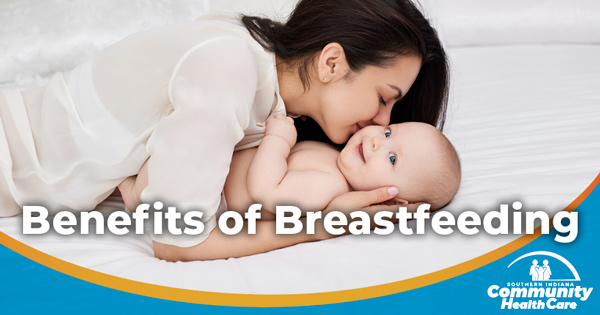Breastfeeding and Young Mothers – the Gold Standard

The facts are in: breastfeeding your baby provides the best source of nutrition for most infants. Plus, if you breastfeed your infant, you can reduce numerous healthcare risks for both you and your baby.
Besides helping to build a special bond between you and your baby, breastfeeding has been rightly called by physicians and researchers “the clinical gold standard for infant feeding and nutrition.” Why? Because breast milk is uniquely tailored to meet the complex needs of your growing baby, producing unmatched health benefits for both infant and mother.
Did you know that research shows that infants who are breastfed have reduced risks of developing asthma, obesity, or Type 1 Diabetes? Breastfeeding also reduces the risks of certain kinds of severe respiratory disease, ear infections, infections that produce diarrhea and vomiting, and even Sudden Infant Death Syndrome (SIDS). Here’s an unusual fact: statistical research notes that babies who are breastfed usually later score higher on IQ tests.
And on top of all of those benefits, breastfeeding helps mothers too. Research shows that mothers who breastfeed can have lower risks of high blood pressure, Type 2 diabetes, and both ovarian and breast cancer.
Why is breastfeeding so good for your baby? From a nutritional standpoint, your breast milk usually gives your baby certain hormones and just the right amount of protein, sugar, fat and most vitamins that your infant needs at this critical time. Your breast milk also includes tailored antibodies that help your baby ward off infection and illness.
Other benefits include the fact that you can breastfeed at any time. You don’t have to prepare or heat up any formula, and there’s no mess to clean up. Plus, the more you breastfeed, the more your body will produce milk, making as much nutritional milk as your baby needs. That’s important, because breast milk usually provides 100% of the food and drink that your baby needs for the first six months.
With all of these benefits, there is still a challenge. While some 83% of babies start out with breastfeeding, that can change rapidly. Statistical research notes that only one in four infants are exclusively breastfed as medically recommended by the time they are six months old.
Questions or concerns? Talk with one of our OB providers at Southern Indiana Community Health Care for more information.
